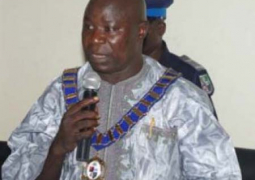A weeklong Multilateral Initiative on Malaria (MIM) Pan-African Malaria Conference on the theme "Building knowledge for Action," last Friday ended in the Kenyan Capital, Nairobi.
The conference brought together 2,000 researches, health officials, policy-makers and activists from Africa and the world. It among others seeks to find a substantial and sustained support for research to guide evidence-based policies and the development of new malaria tools, which together could save countless lives.
Mr. Wen Kilama, representing the current host of the MIM Secretariat in Tanzania announced at the closing of the conference that the MIM Secretariat will be moved to Cameroon, and it is anticipated to occur in January 2011.
He stated that MIM is a network of building the capacity of African scientists to conduct malaria research, noting that it was established in 1997, with the support of the United States National Institutes of Health Research (NIHR), Welcome Trust in the United States, among others. According to him, MIM has a lot to offer African scientists.
"We would like to help researchers communicate findings better, increase research that provides evidence for health-care policy, and encourage more Africans to utilise the tools of genomics," he stated.
He noted that from a small meeting of 90 scientists and 30 from Africa in Senegal1997, MIM has evolved into the largest malaria research meeting in the world, with more than 2000 scientists participating in this year's meeting in Nairobi.
"MIM has provided research grants to investigators in more than 18 African countries, training a repository of malaria samples for research and internet and other communications connectivity to African researchers and institutions," he added.
He concluded by saying that together with organisations like the Roll Back Malaria Partnership, MIM has helped raise awareness of the need for research on malaria to develop the new tools and strategies necessary for improved control.
Read Other Articles In Article (Archive)




